QIF2QFX: Convert QIF to QFX and import into Quicken Classic
Need to import bank or credit card transactions in a QIF file into Quicken Classic, but cannot seem to make it work? The problem is that your bank only provides transactions in a QIF format that Quicken Classic may not read correctly.
The Solution: try ProperConvert (QIF2QFX) app. It can convert your transactions from QIF to QFX format.
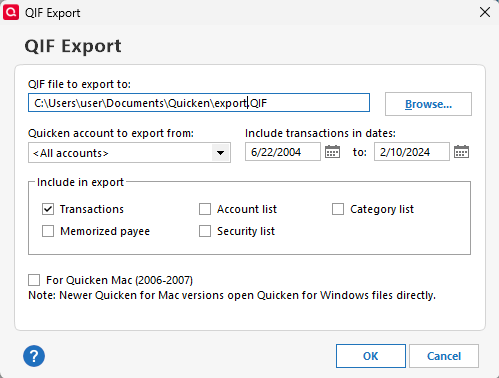
Convert transaction files to the QFX format
- ProperConvert (QIF2QFX) extracts transactions from QIF files. It creates QFX files ready to import into Quicken Classic (Windows and macOS).
- No data entry: convert data you already have in bank or credit card transactions file format to the QFX format
- Smart: ProperConvertQIF2QFX understands many layouts. It finds columns like date, amount, description, etc. of your transactions.
- Easy to use: Converting your banking transactions into QFX files could not be any easier. In a few clicks, you will have all your transactions converted to importable by Quicken 2021-2024 format in no time at all.
- Free trial and support: try it for Free before you buy and receive full support before and after you order.
- Safe to use: QIF2QFX converts all your banking transactions on your computer.
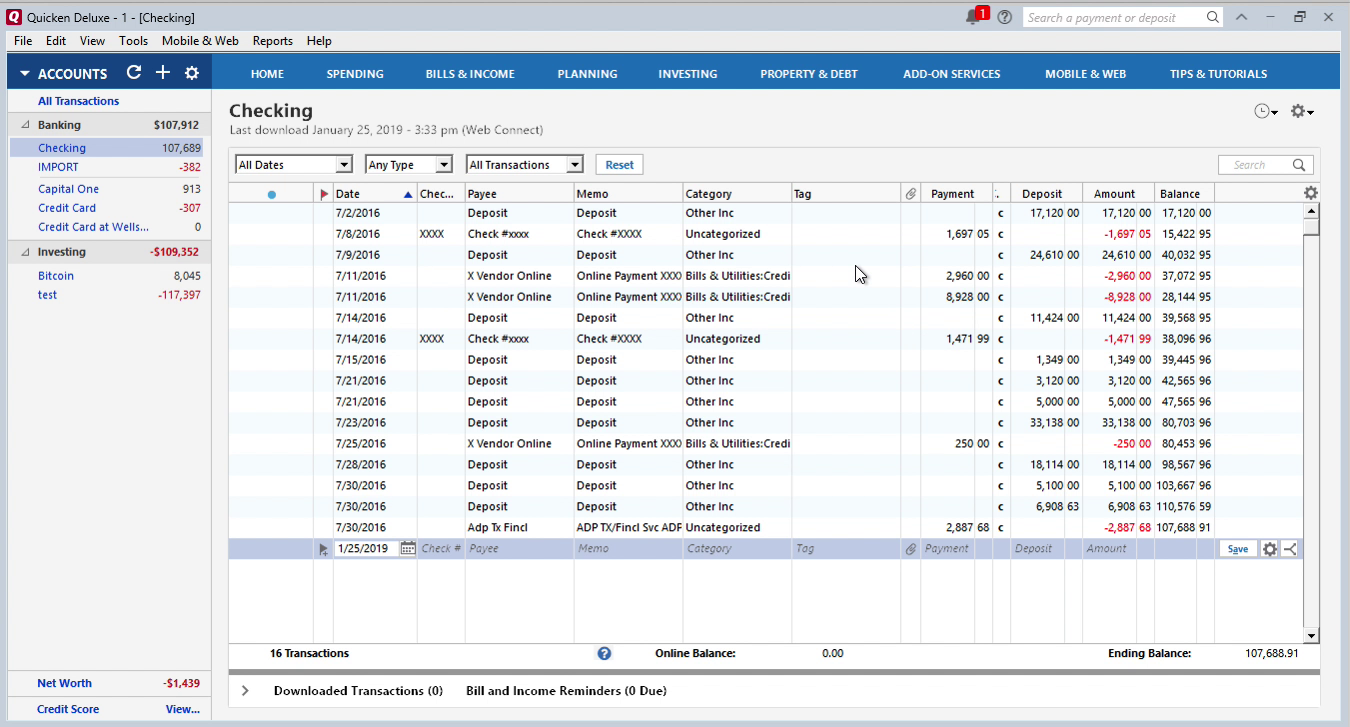
Convert QIF to QFX (QIF2QFX)
This tutorial shows how to convert a QIF file from your bank or credit card statement to QFX (Web Connect) and import into Quicken.
Use the ProperConvert app to convert QIF to QFX. Other formats are supported as well.
Step by step instructions for Windows
Follow the steps below for the Windows version, followed by the Mac version.
Make sure you are using the latest version of QIF2QFX. Download it from the QIF2QFX download page. Start QIF2QFX and select a QIF file.
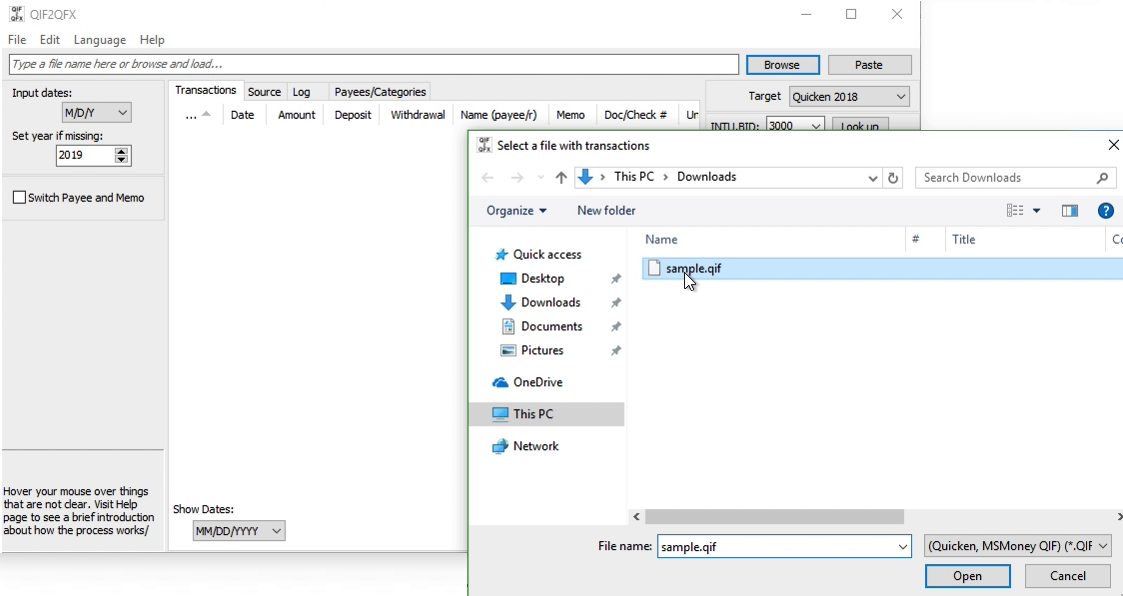
Review transactions before converting, check that dates are correct, have the correct year, deposits, and withdrawals are assigned correctly.
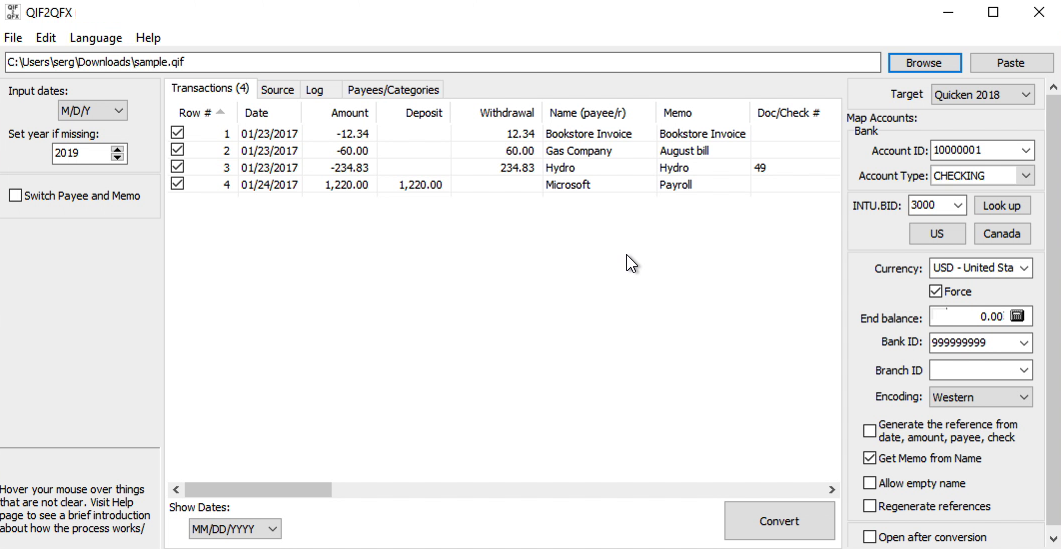
Select the QFX target to match your Quicken version or your accounting software: Regular QFX, Quicken 2018+, Quicken 2017, Quicken 2016, Quicken 2015, YNAB.
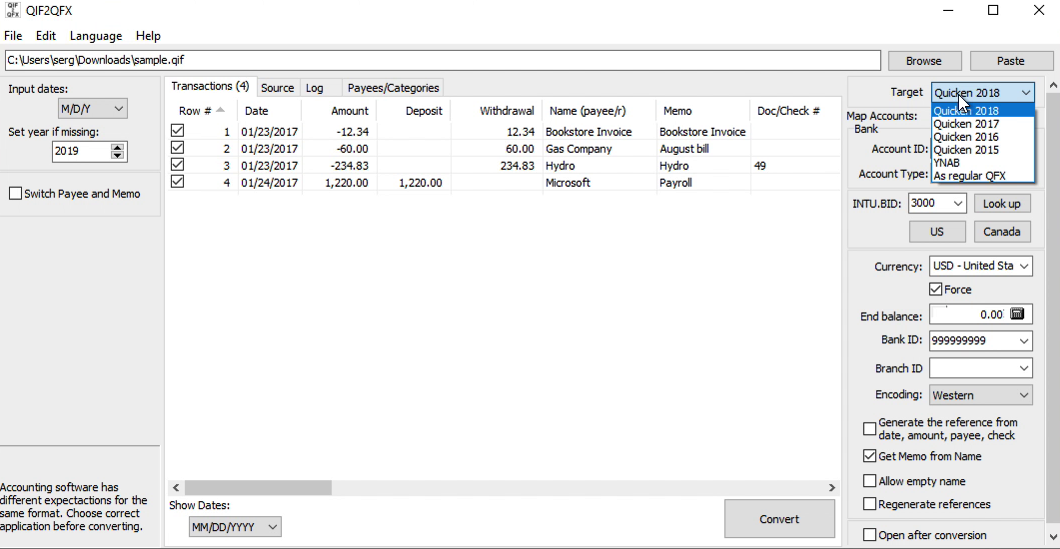
Set INTU.BID to match your bank or keep the default value. The INTU.BID value defines the bank label shown during import. It has to be from the allowed bank. You can try to locate your bank. Make sure a bank you choose, supports the Account Type you are converting for. You have to leave it empty if your bank is not listed, so the default Wells Fargo Bank Label (3000) will be used.
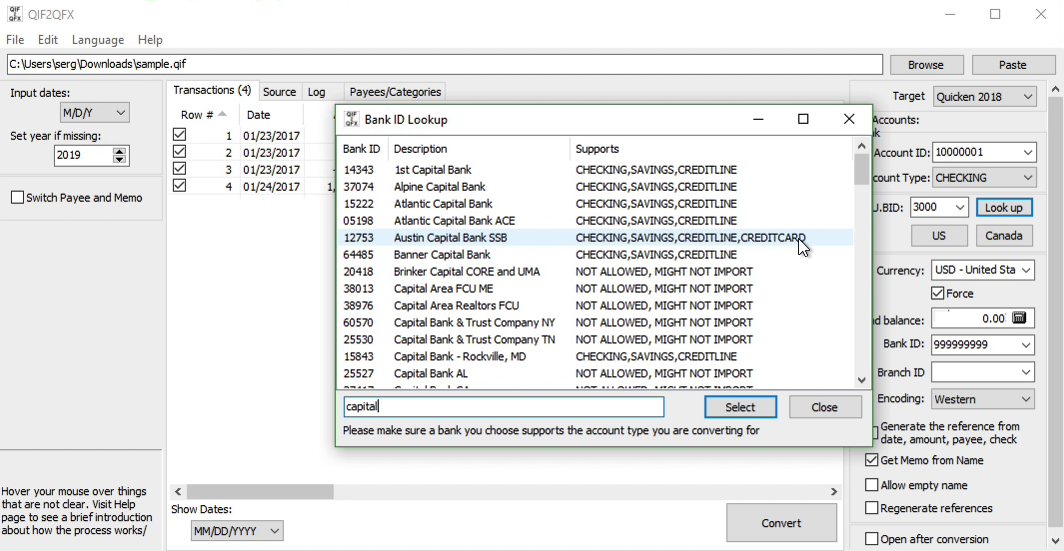
Set the Account ID (number) and the Account Type to create QFX for the right account. For multiple accounts, use a different Account ID for each account.
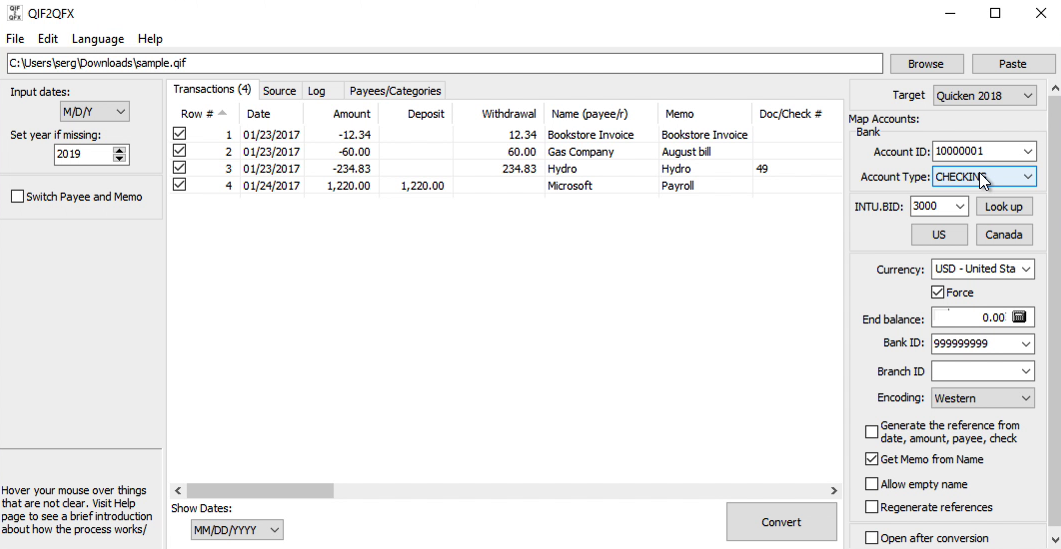
Currency should be USD even for non-USD accounts for the Quicken US edition. For the Canadian edition, you can use USD and CAD. And for the UK edition, GBP currency must be set. You can also set End balance, Bank ID, Branch ID if your accounting software requires it.
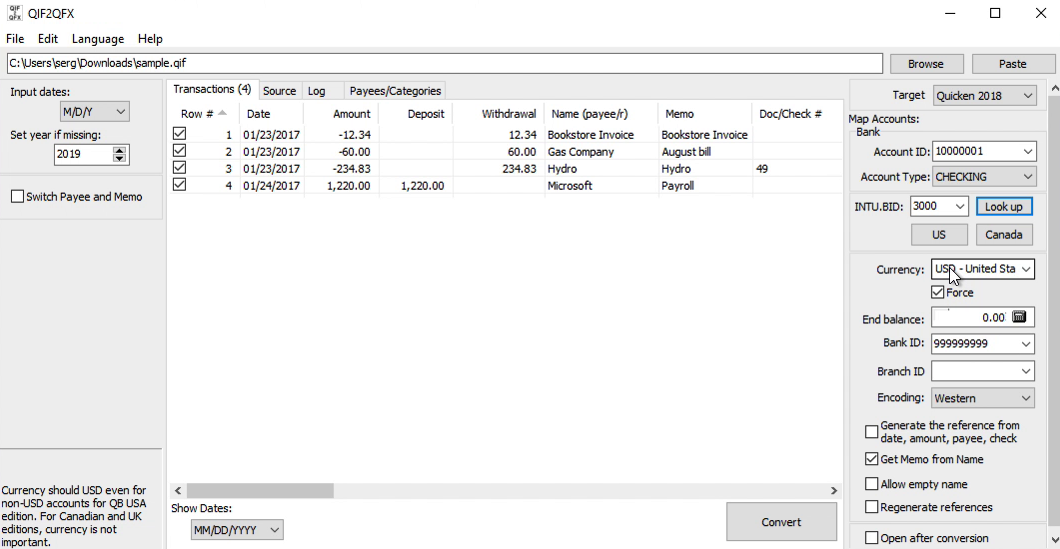
Click the 'Convert' button to create a QFX file.
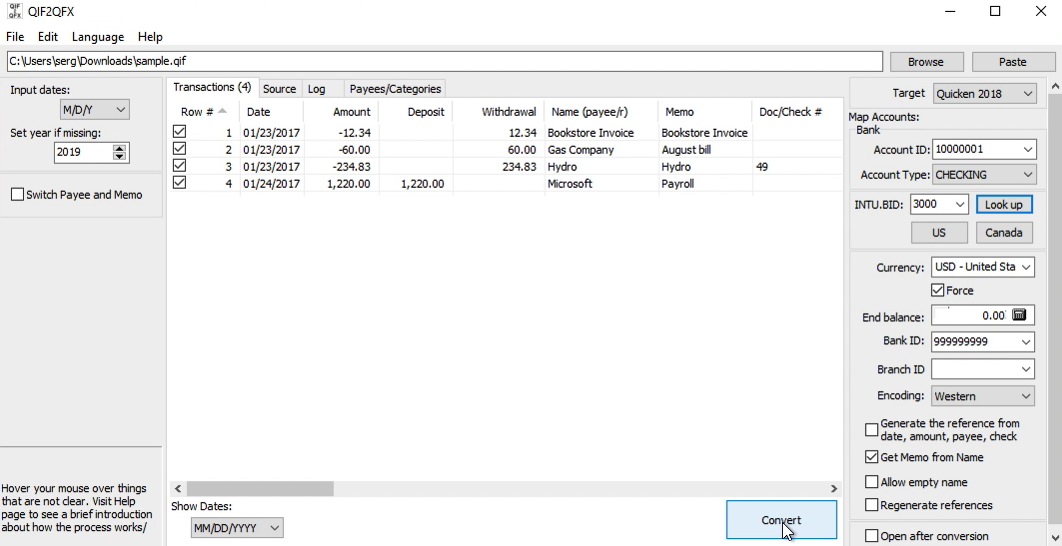
Confirm the file name and location.
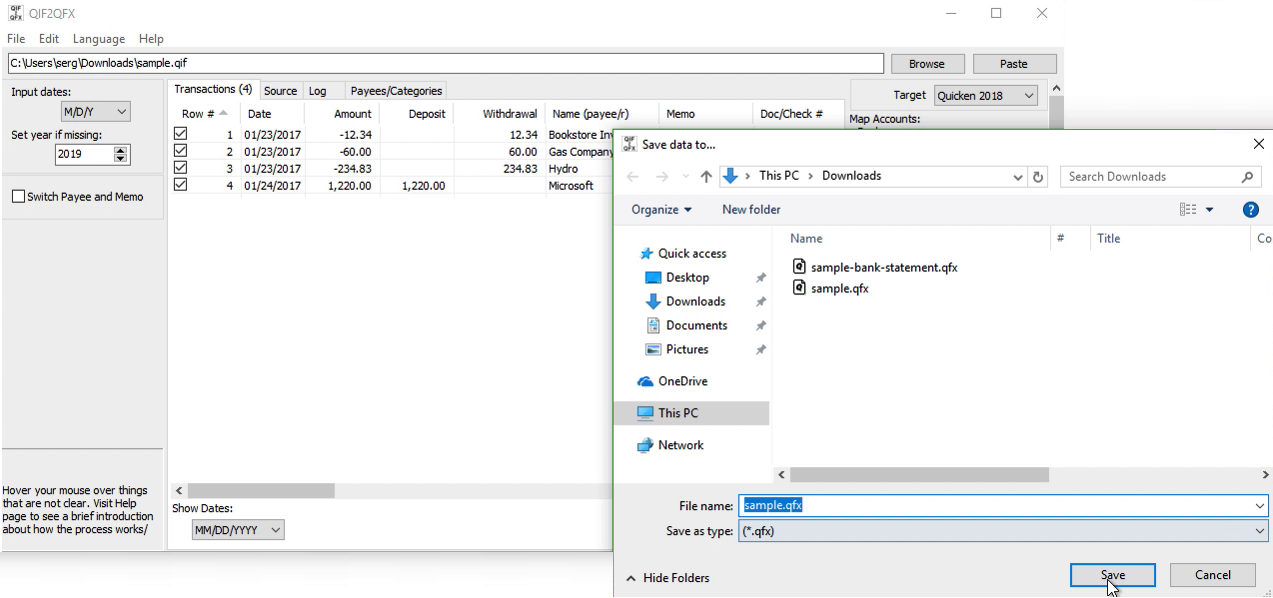
Import created QFX file into Quicken
Now the QFX file is created, let's switch to Quicken and import created QFX file. Before importing a QFX file backup your data file and make sure that the account is not connected to online services. Right-Click - 'Edit/Delete account'.
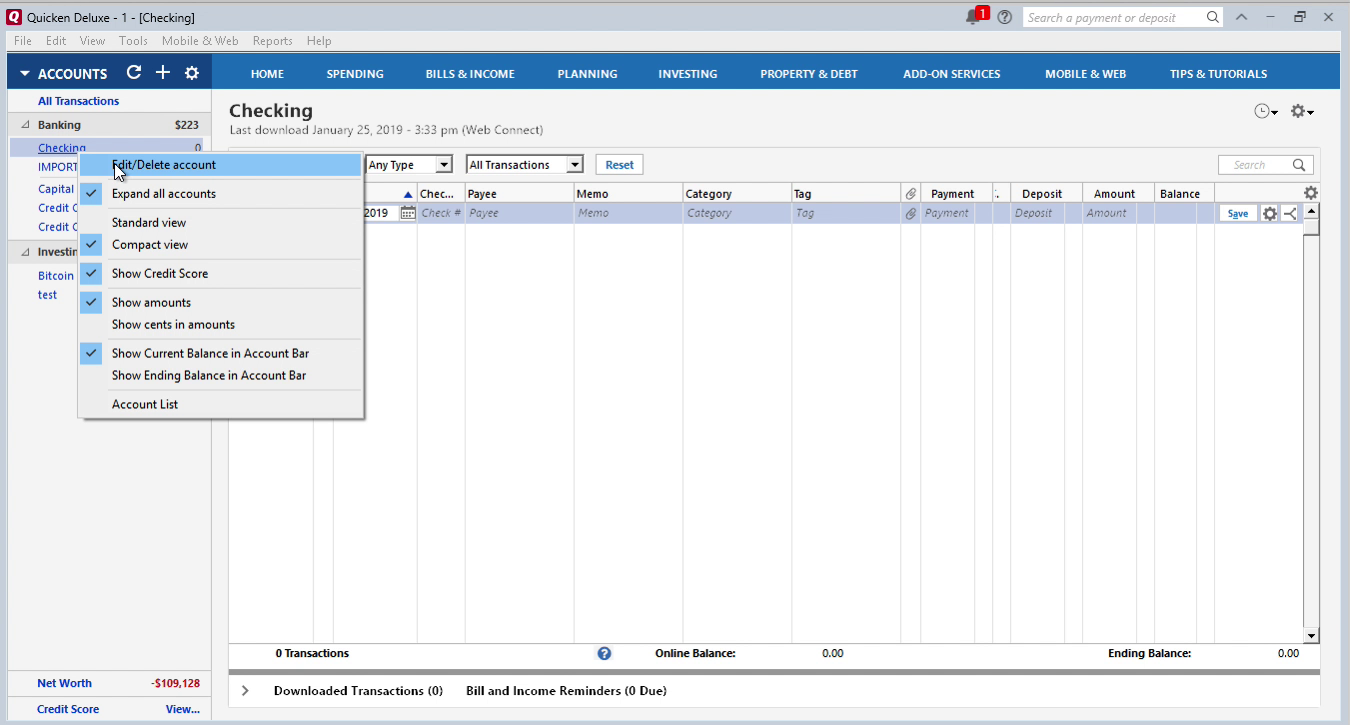
Then click 'Online Services' and click on the 'Deactivate' button. Then click 'Yes' and 'Ok'.
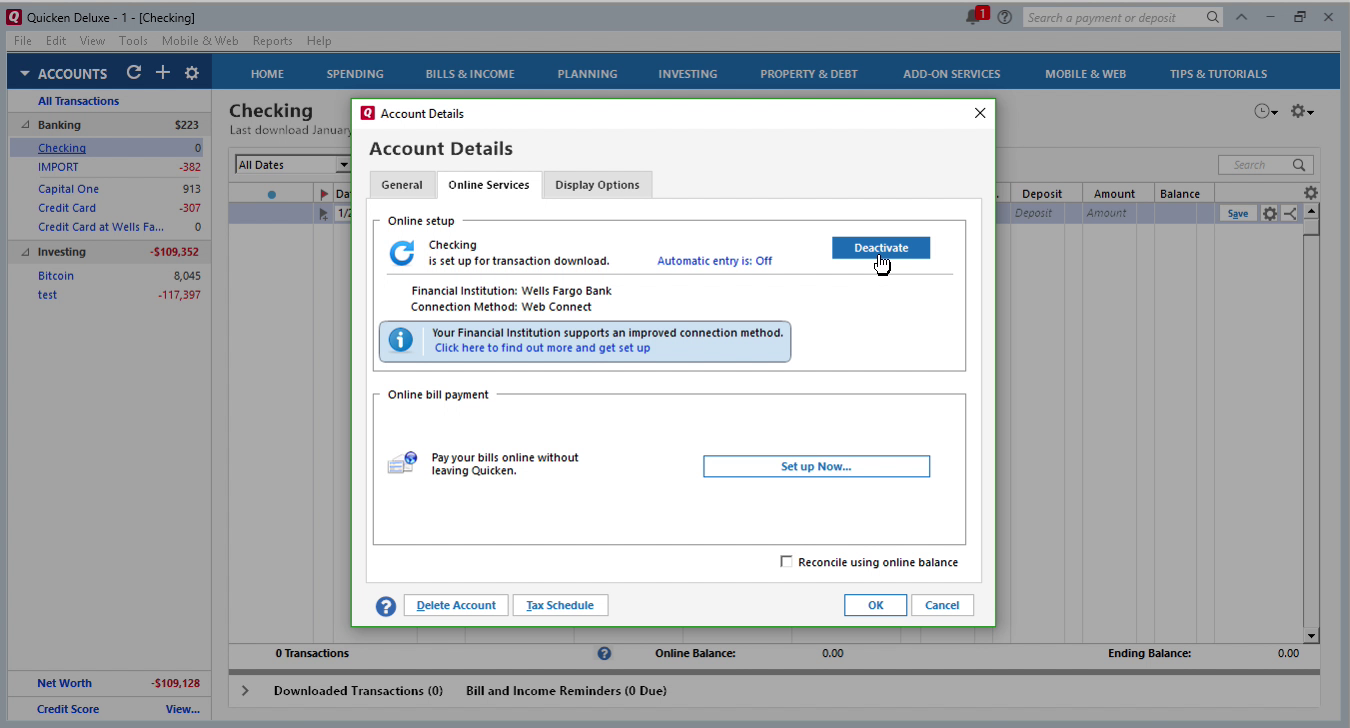
To import a QFX file, select 'File' - 'File Import' - 'Web Connect (.QFX) File', select created QFX file.
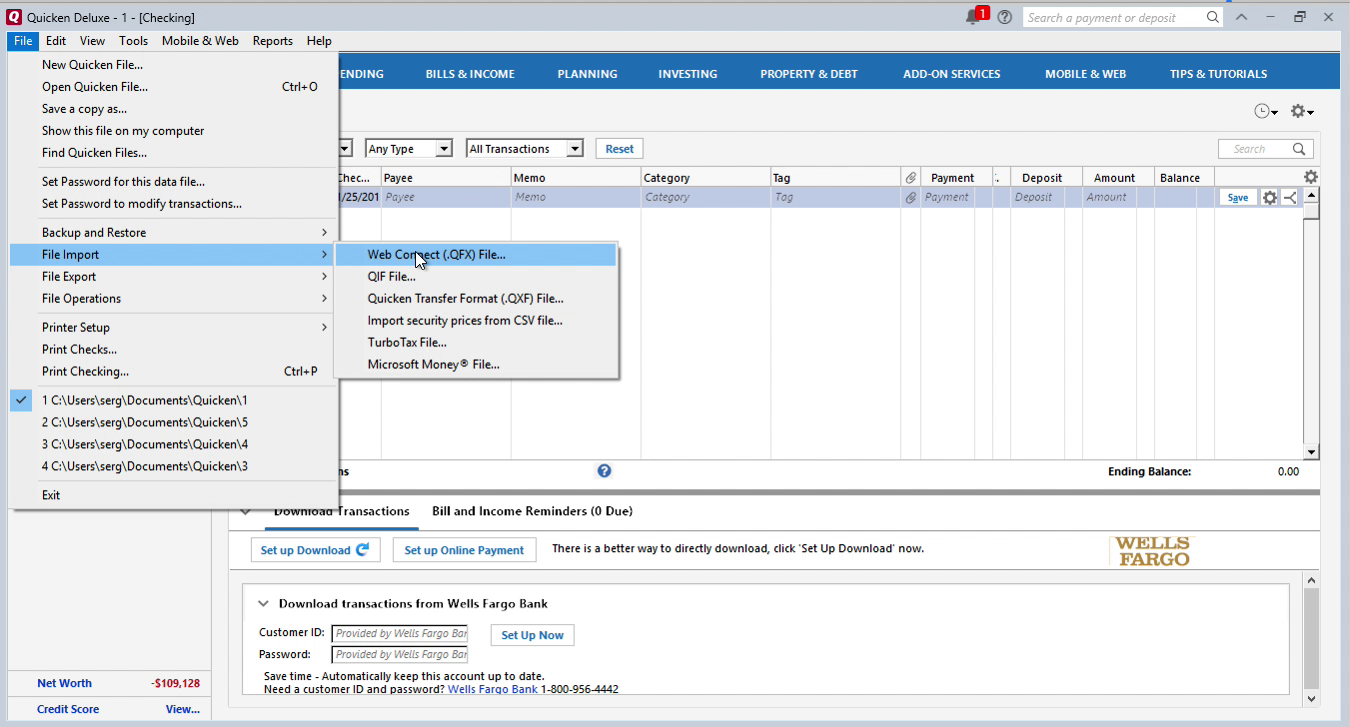
You can select 'Create a new account' or you can select 'Link to an existing account to import transactions'. If you are disconnected from online services, that account will be shown on the list. You may choose to keep online services connected and import into a new account if you have something temporary to import. You can import in that account, and then move transactions from that account to another account. So this way you will keep the existing account connected to online services and you don't have to connect it back later.
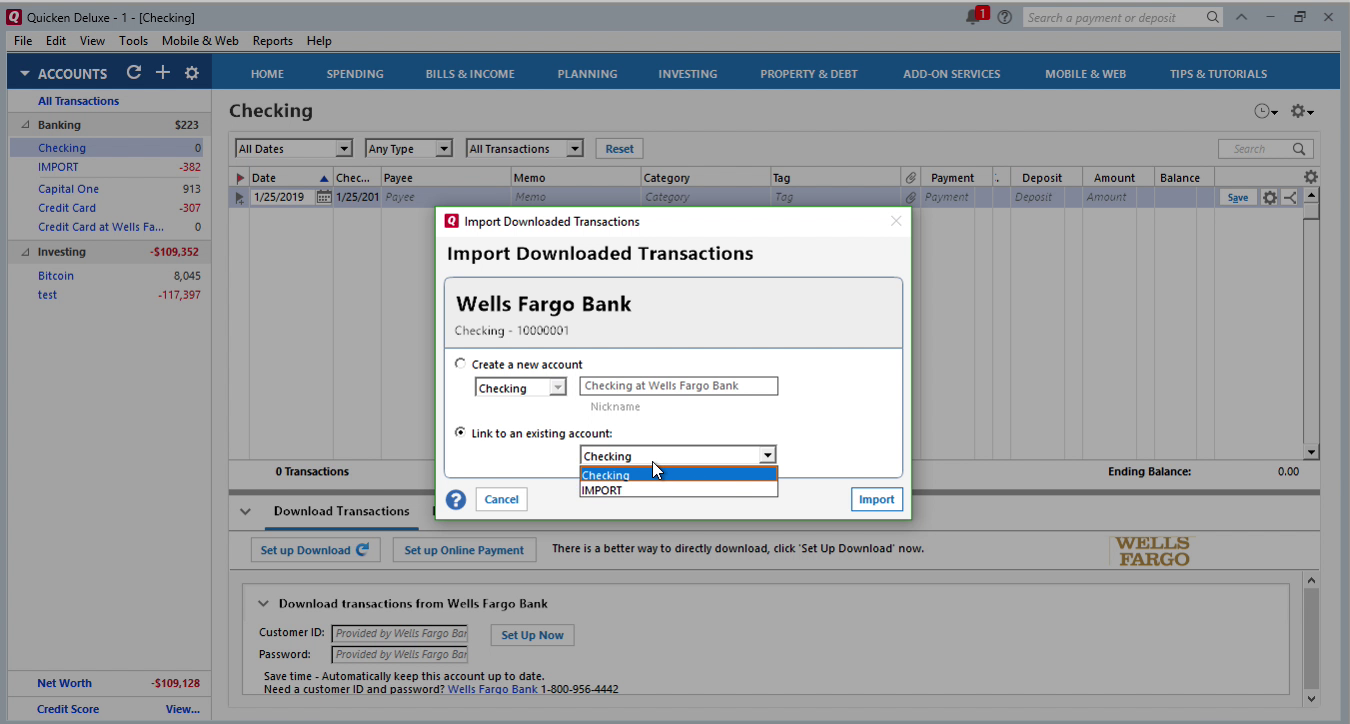
Then click the 'Import' button.
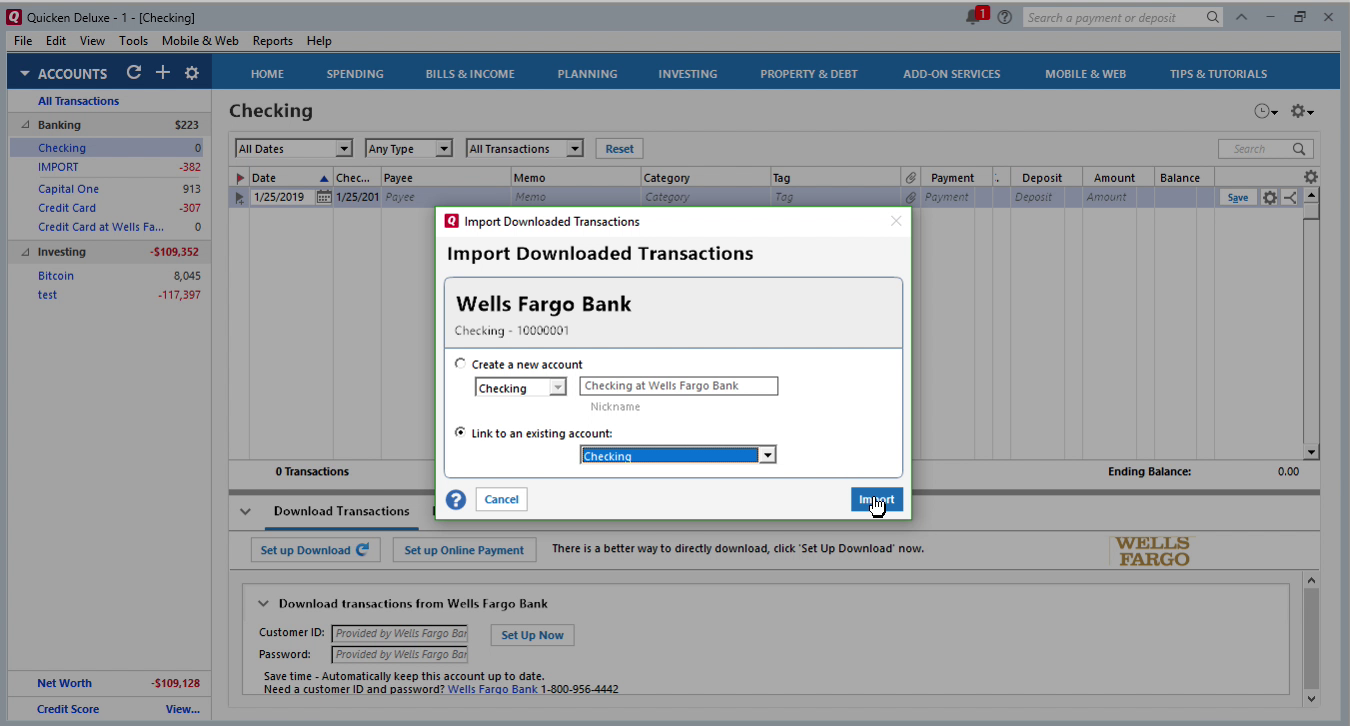
Then click the 'Close' button.
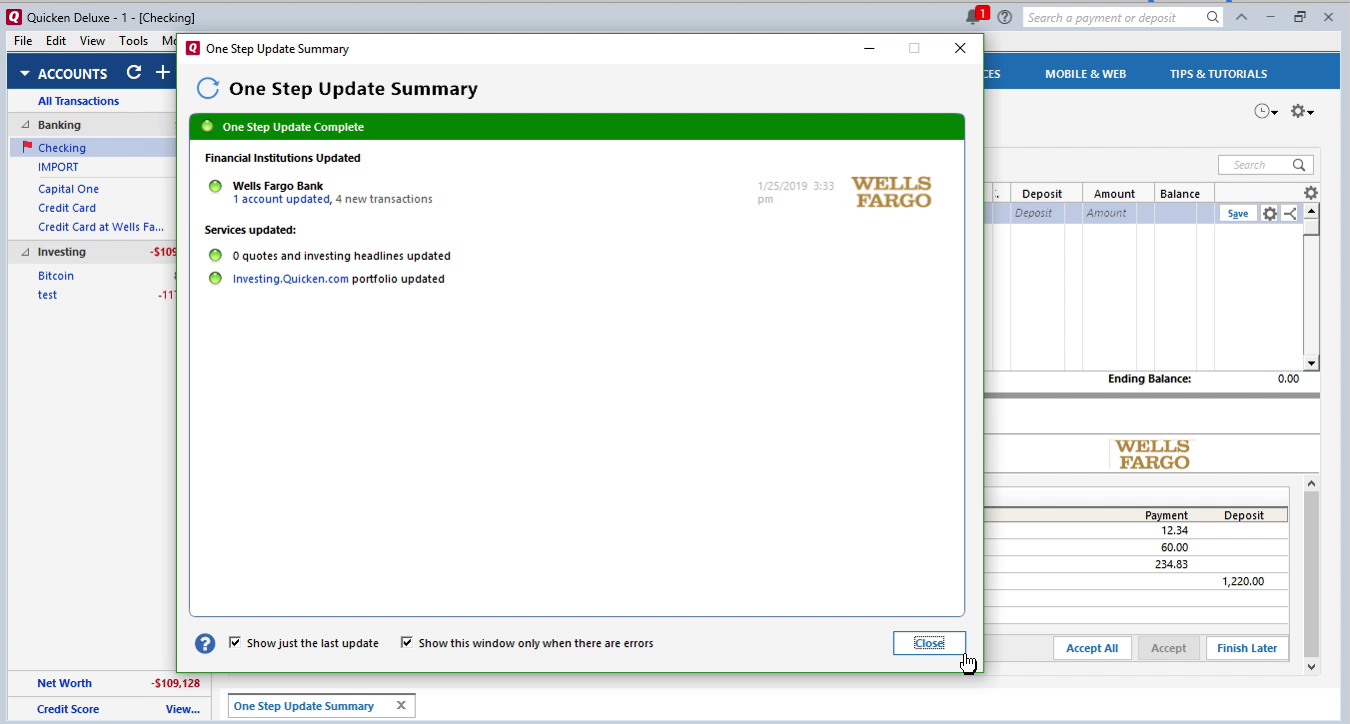
Now your data is imported. You can accept all transactions.
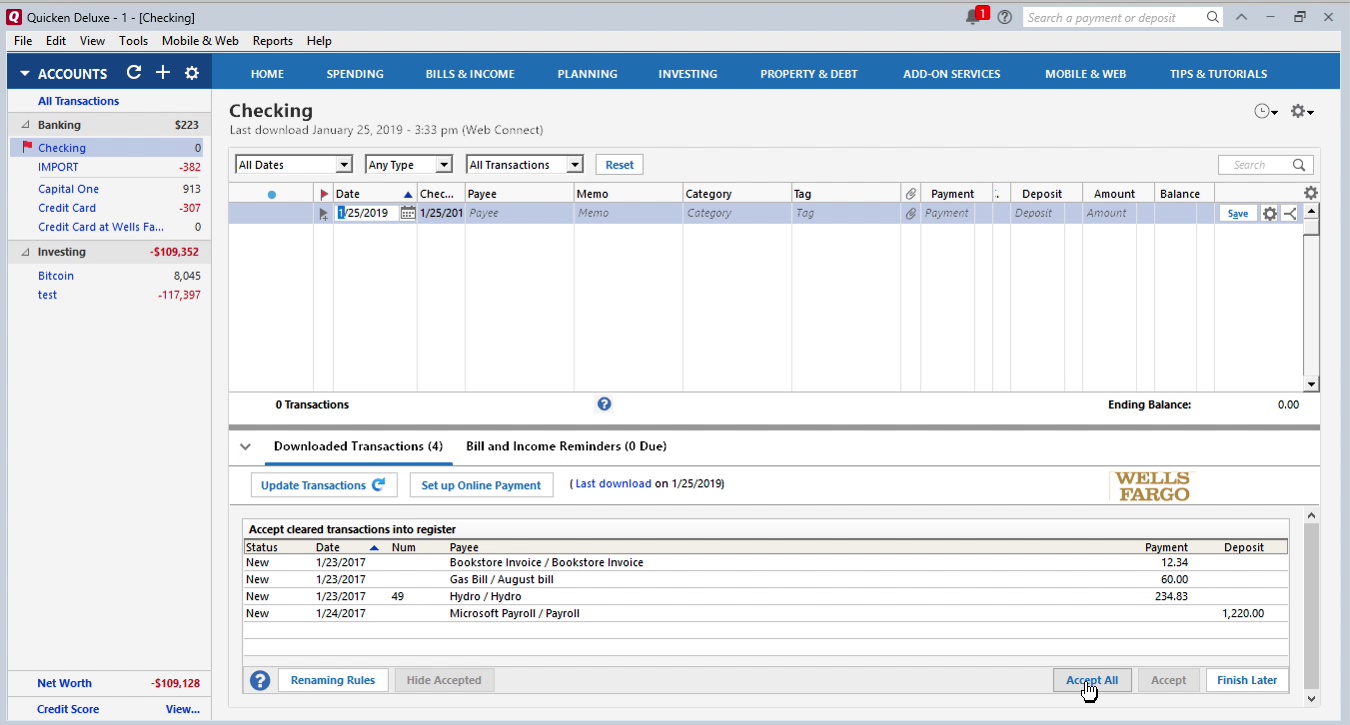
Review transactions after QFX import.
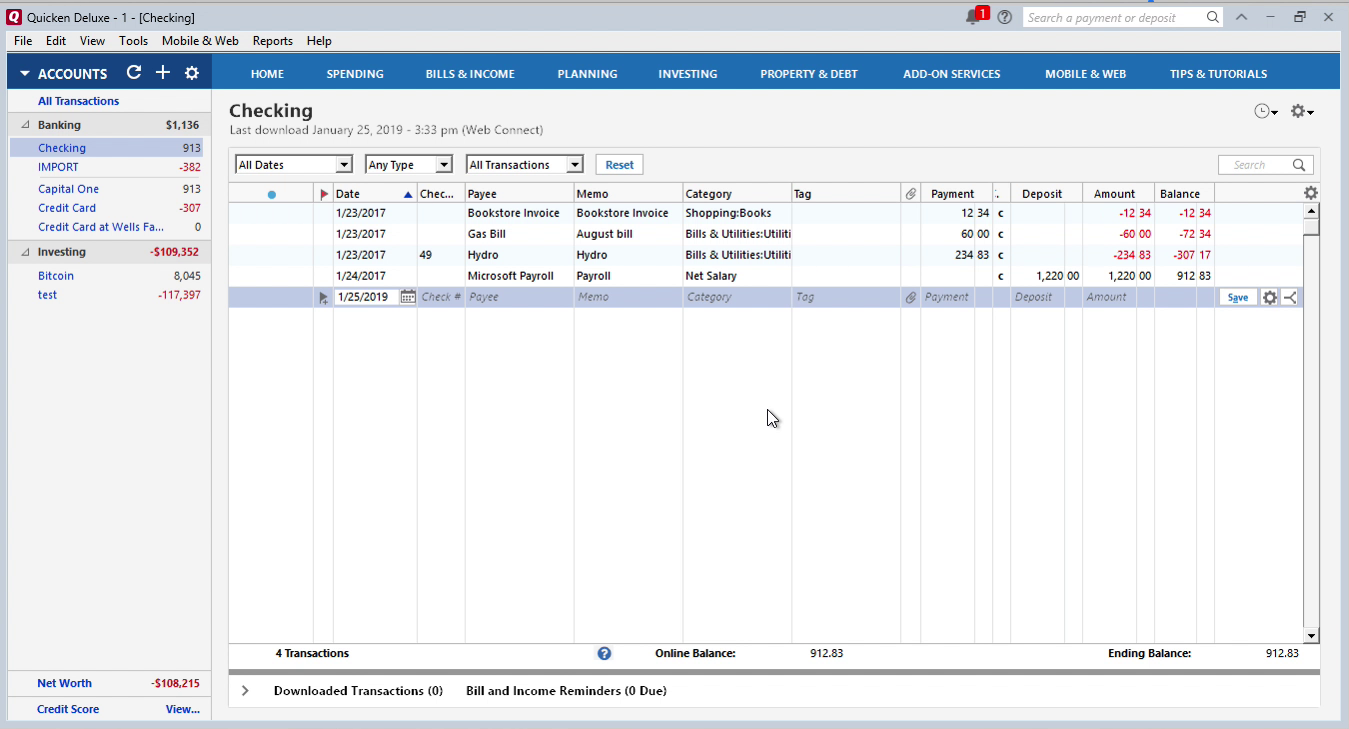
See this Windows tutorial as a video:
Step by step instructions for macOS
Make sure you are using the latest version of QIF2QFX. Download it from the QIF2QFX download page.
Start QIF2QFX and select a QIF file.
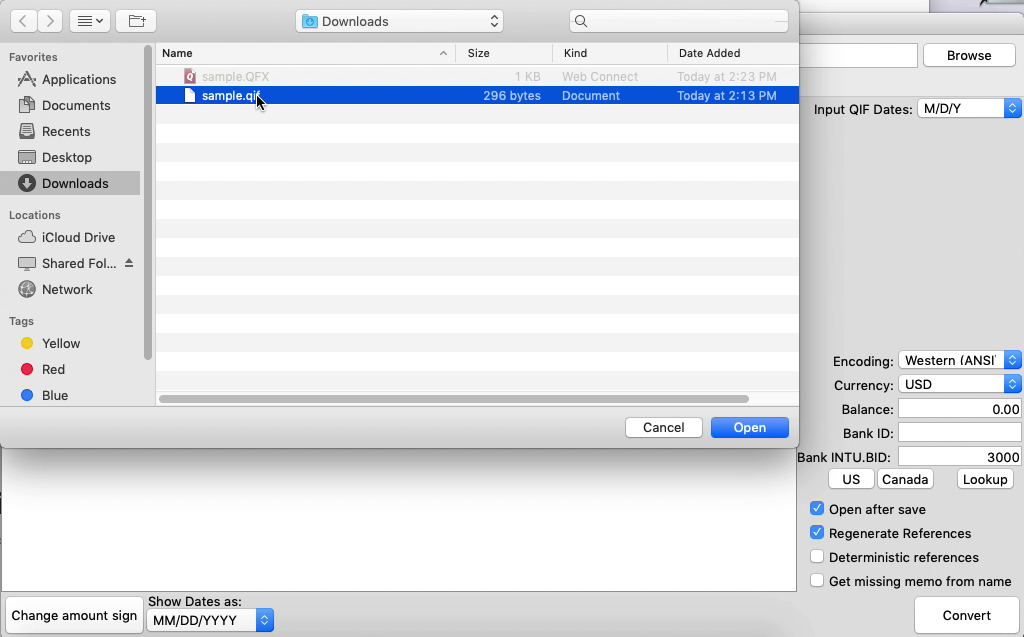
Review transactions before converting, check that dates are correct, have the correct year, deposits, and withdrawals are assigned correctly.
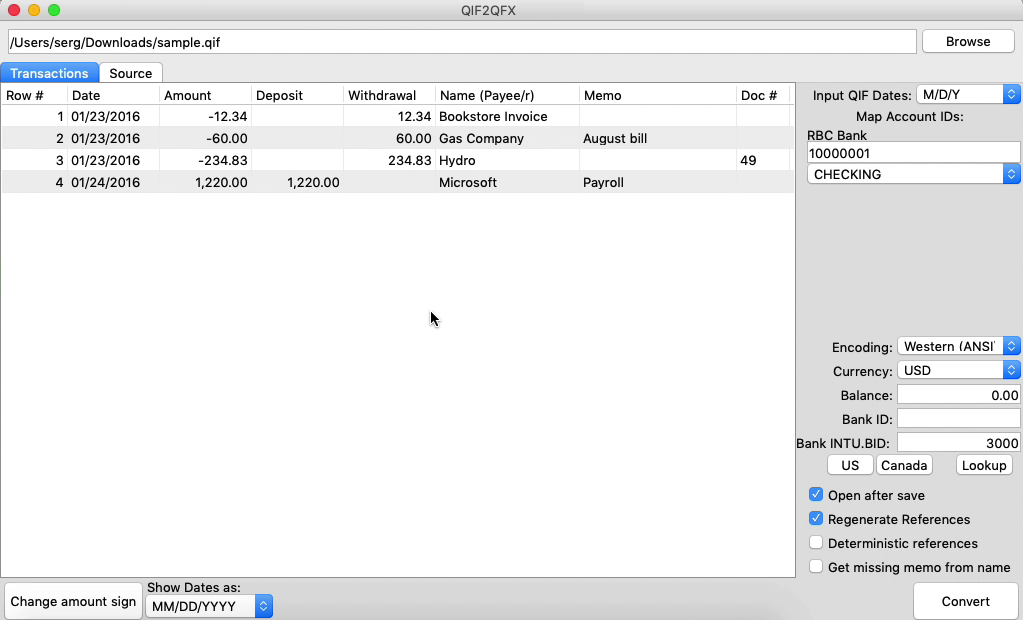
Set the Account ID (number) and the Account Type to create QFX for the right account. For multiple accounts, use a different Account ID for each account.
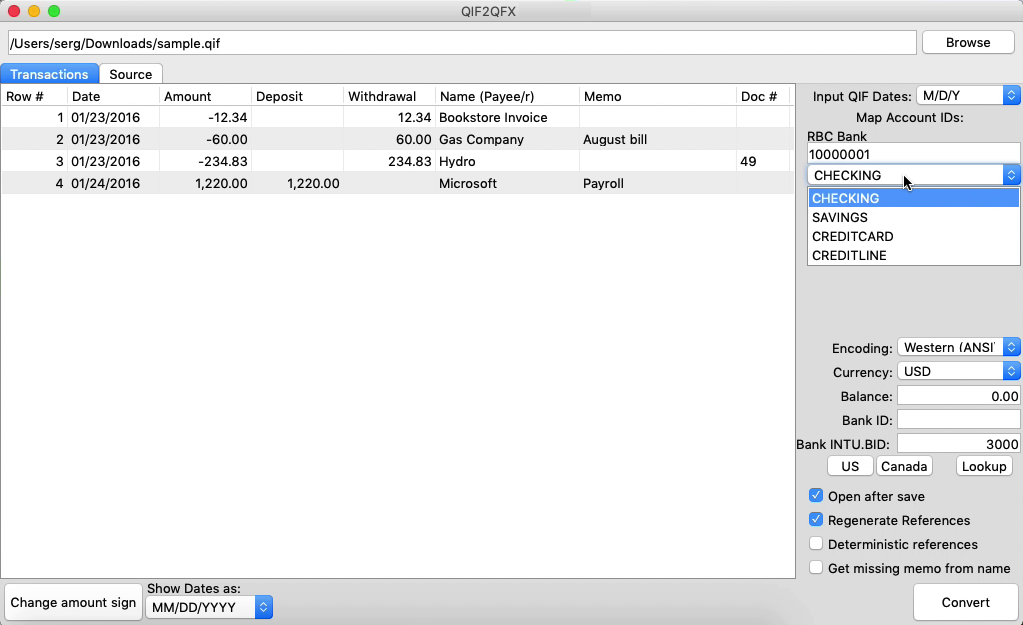
Currency should be USD even for non-USD accounts for the Quicken US edition. For the Canadian edition, you can use USD and CAD. And for the UK edition, GBP currency must be set. You can also set End balance, Bank ID, Branch ID if your accounting software requires it.
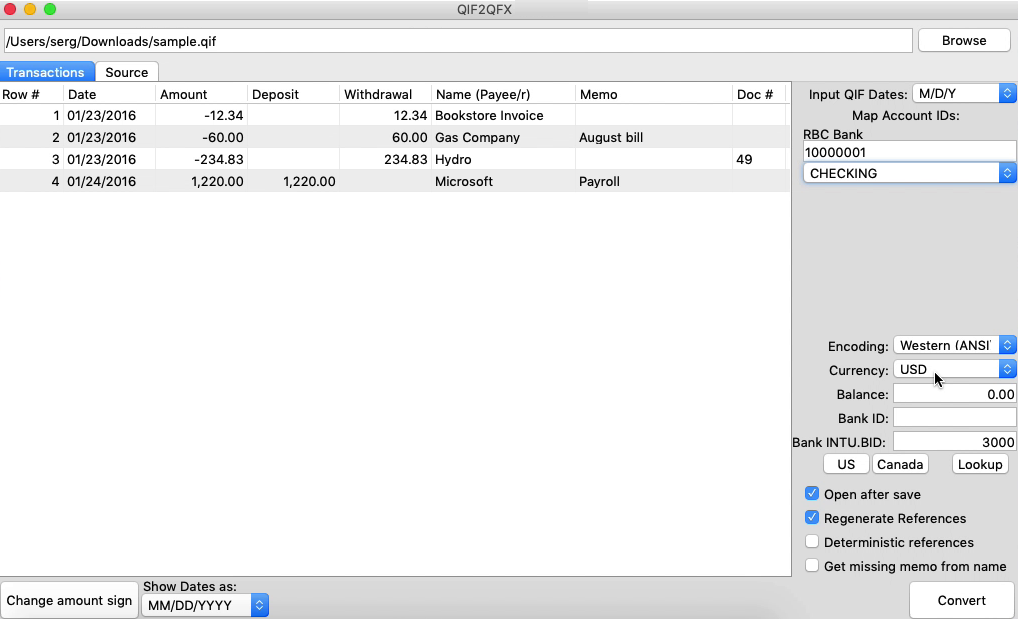
Set INTU.BID to match your bank or keep the default value. The INTU.BID value defines the bank label shown during import. It has to be from the allowed bank. You can try to locate your bank. Make sure a bank you choose, supports the Account Type you are converting for. You have to leave it empty if your bank is not listed, so the default Wells Fargo Bank Label (3000) will be used.
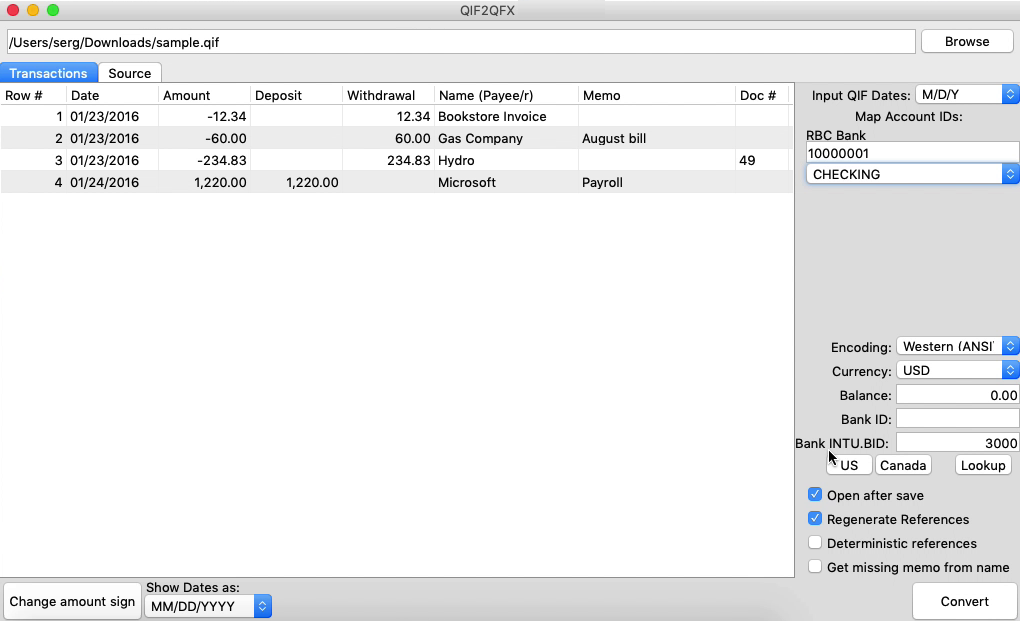
Click the 'Convert' button to create a QFX file.
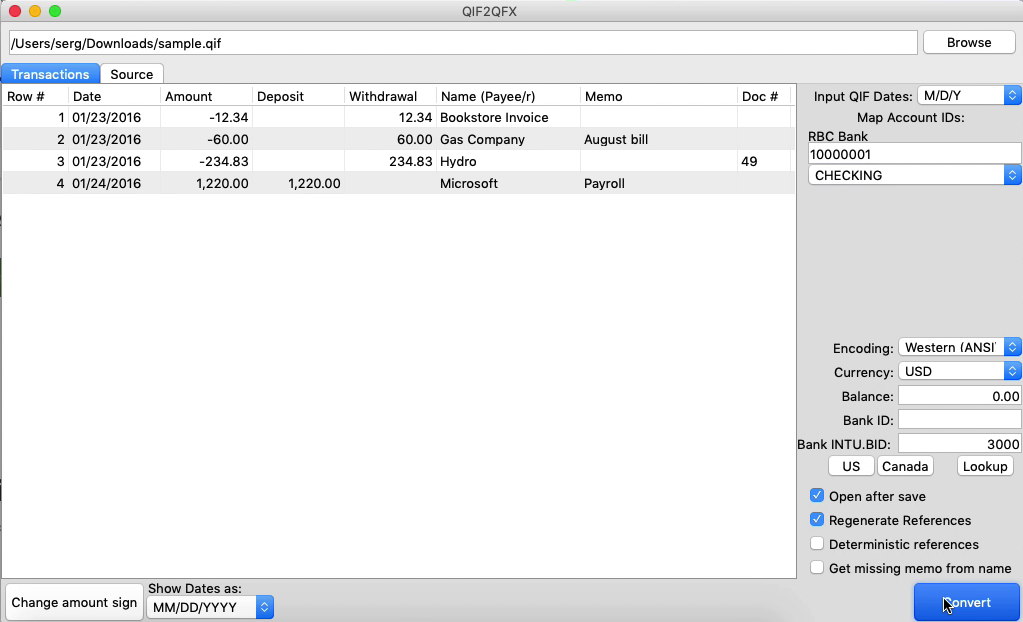
Confirm the file name and location.
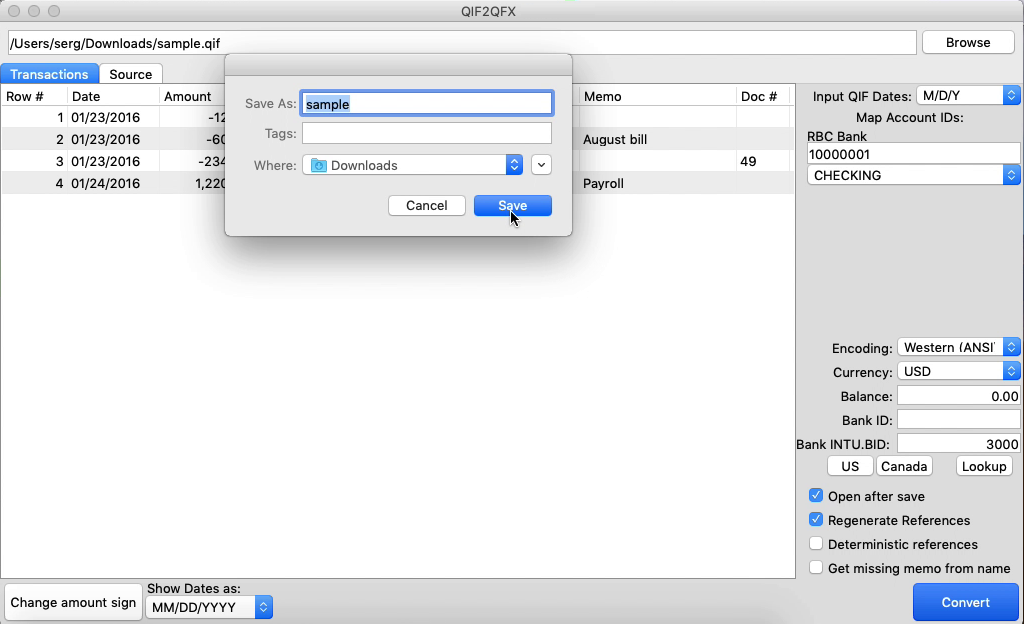
Import created QFX file into Quicken
Now the QFX file is created, let's switch to Quicken and import created QFX file. Before importing a QFX file backup your data file and click 'Quicken' - Preferences' and 'Connected Services'.
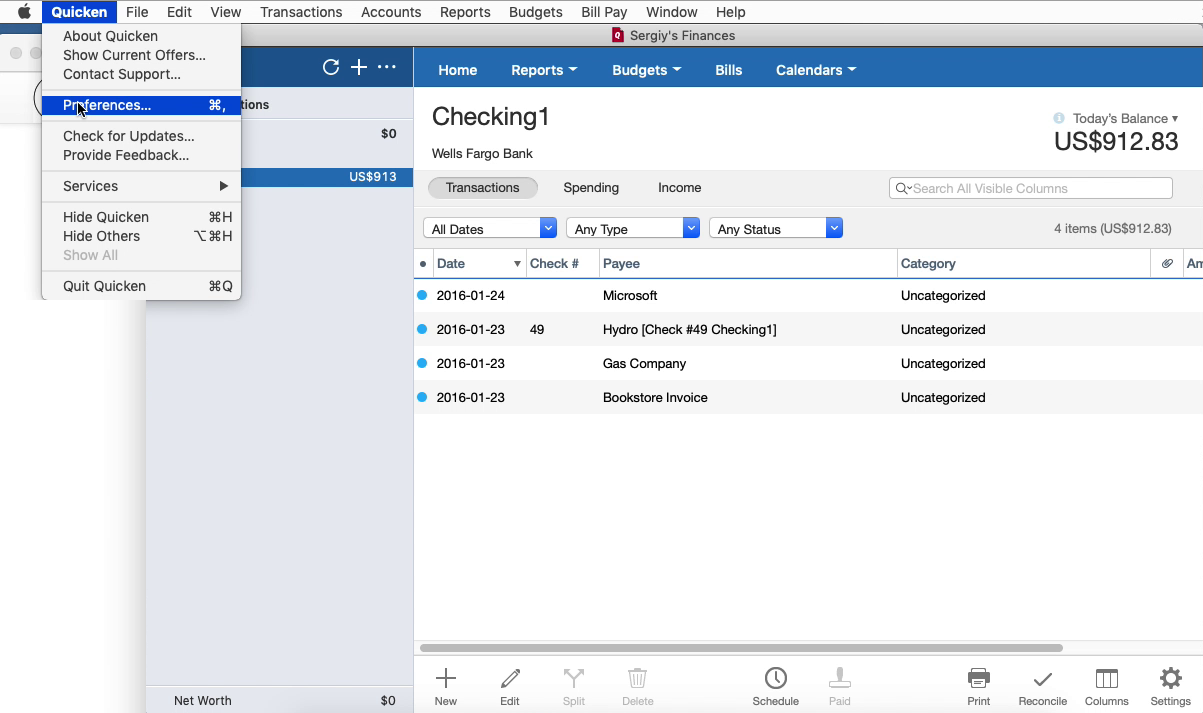
Make sure to uncheck 'Clean up payees. Automatically improve the quality of downloaded payee names', because when this checkbox set, it could change the payee names to something unrecognizable, not what you have on QFX File.
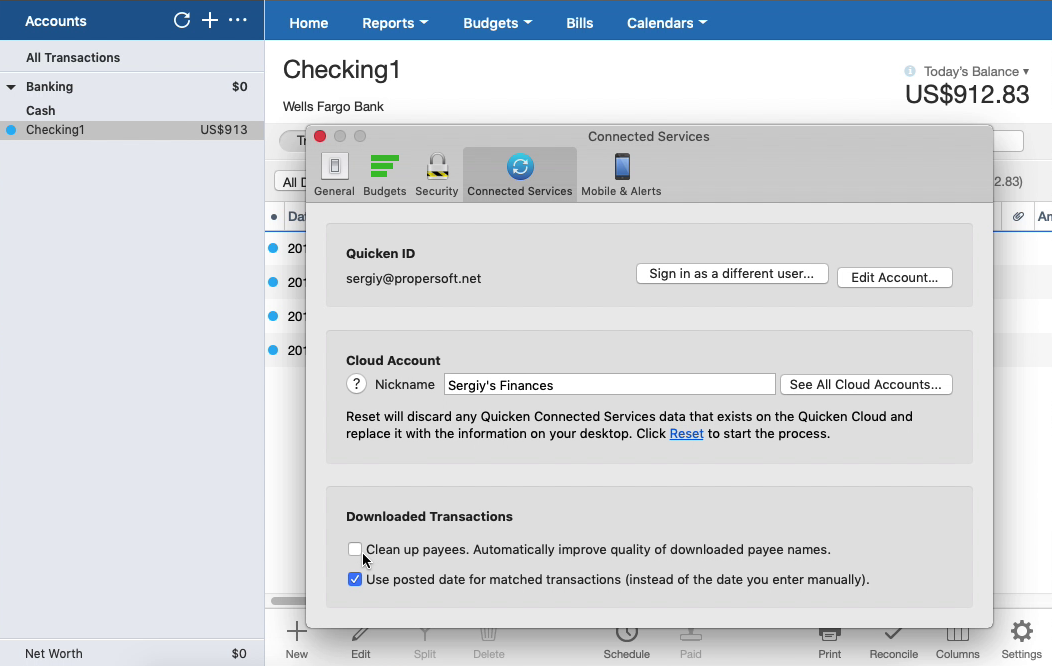
Before converting into a specific account, make sure that the account is not connected to online services. Right-click - 'Edit' account.
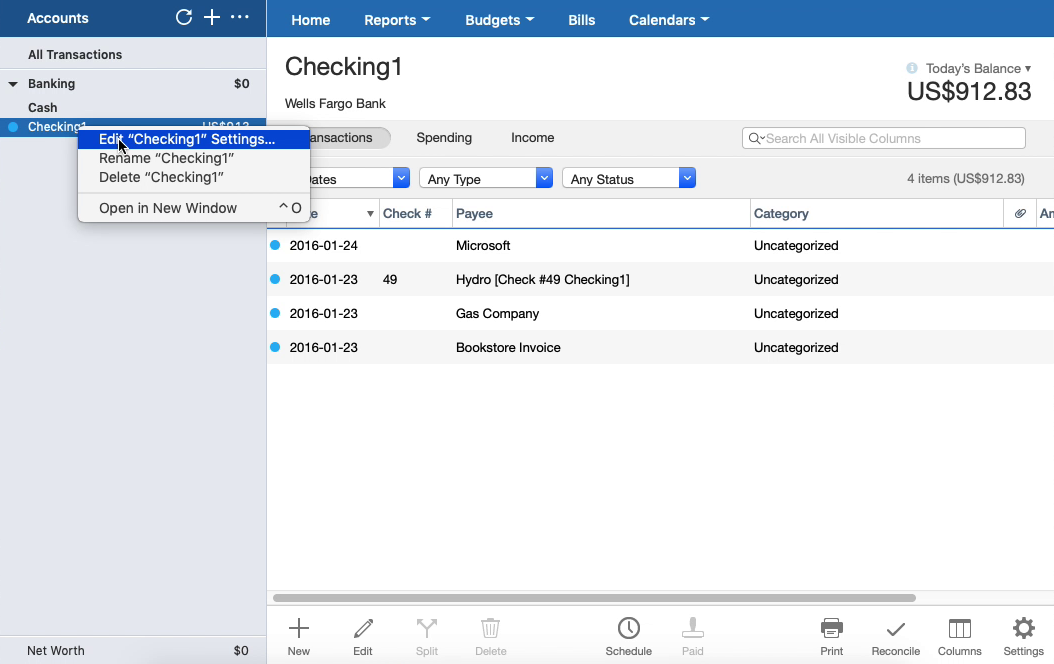
If you see, for example, Connection Type (Web Connect), it means that it is connected. We have to disconnect from online services first. Click on 'Set up transaction download'.
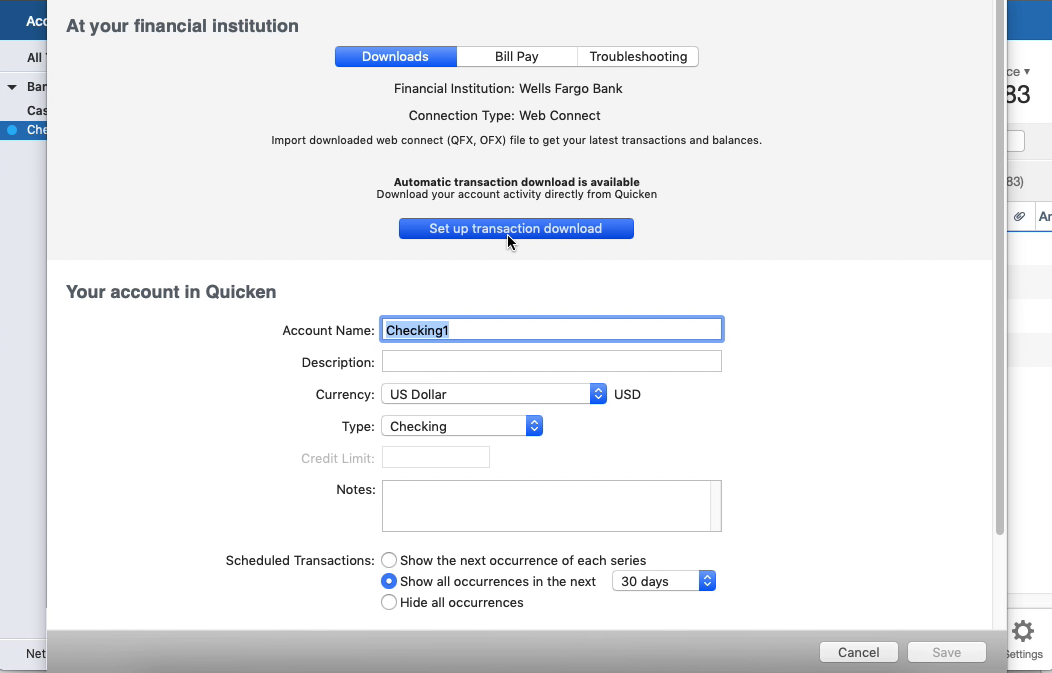
Then click the 'Options' button.
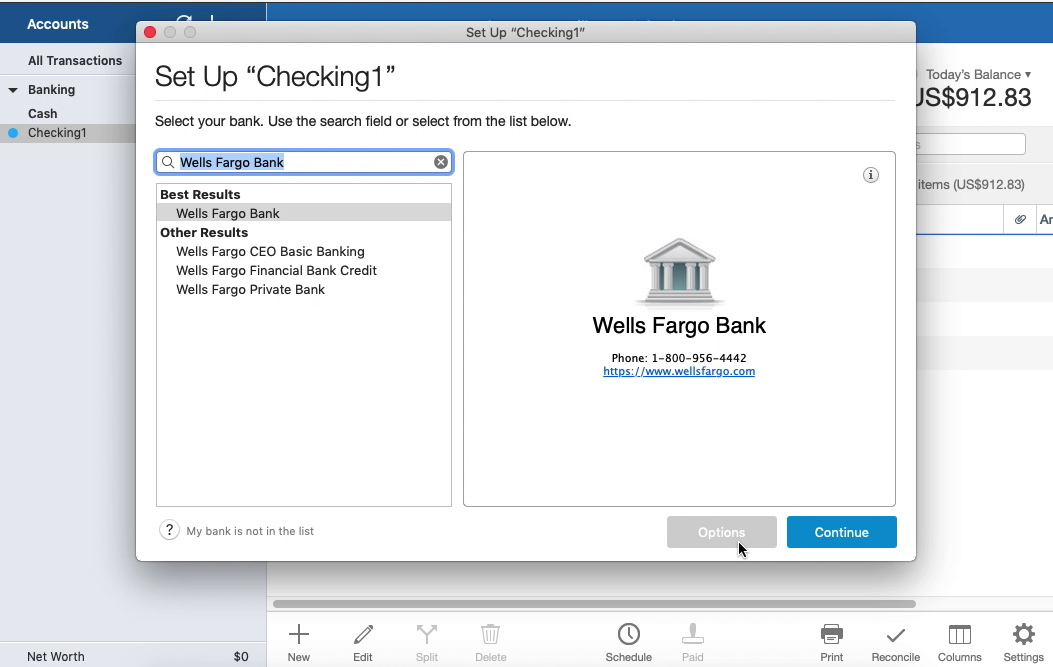
Select 'Manual' and click the 'Continue' button.
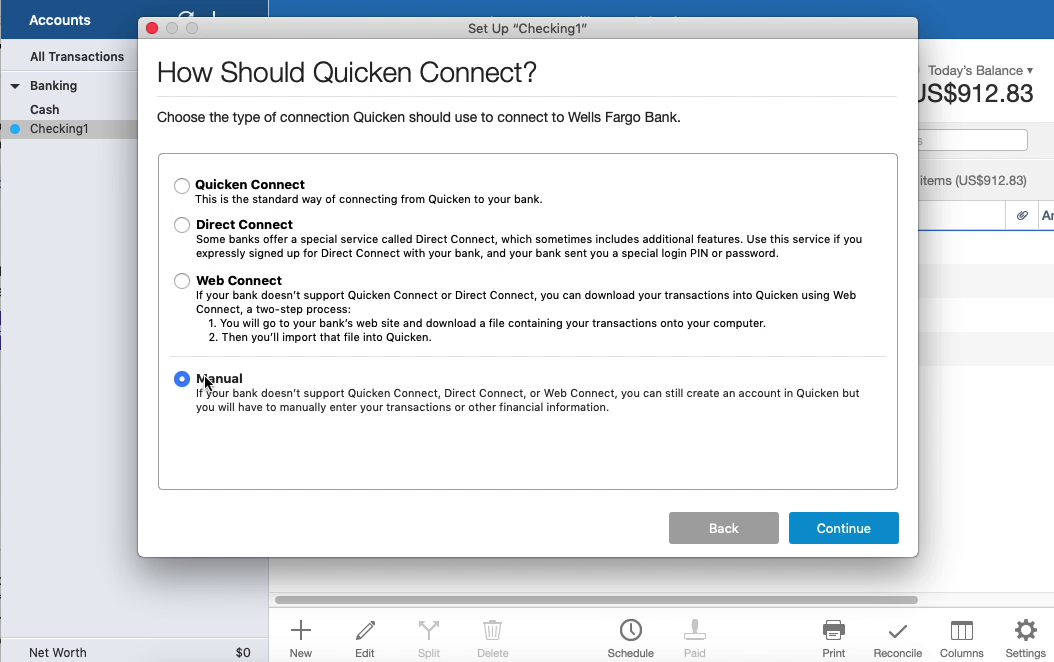
Click the 'Finish' button. This way you disconnect from direct online download and now you can import a QFX file into this account.
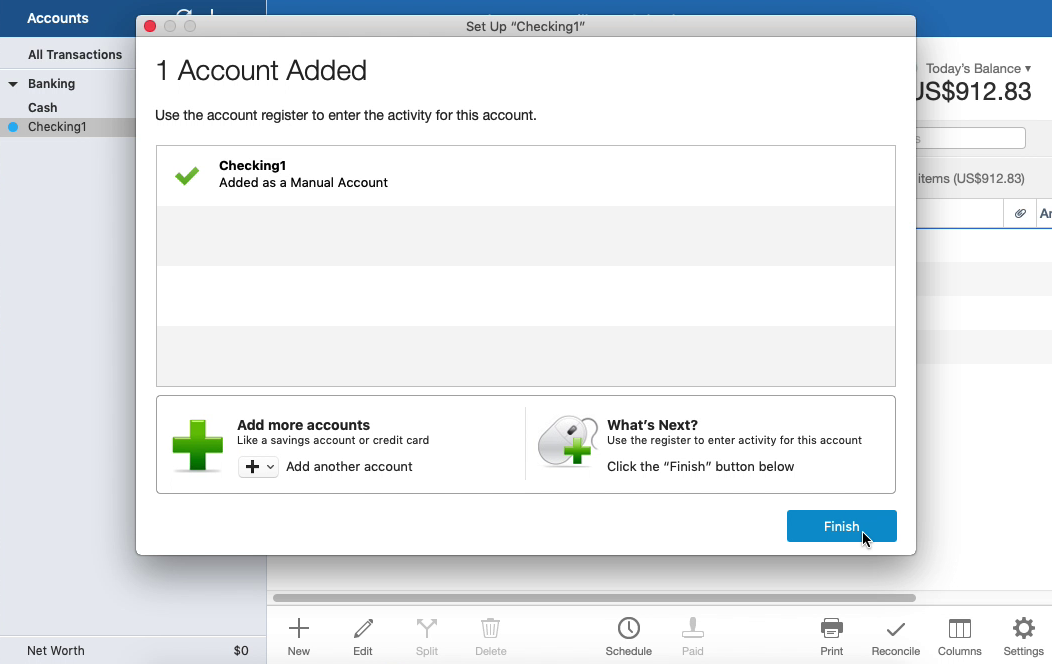
To import a QFX file, select 'File' - 'Import' - 'Bank or Brokerage File (OFX, QFX)', select created QFX file.
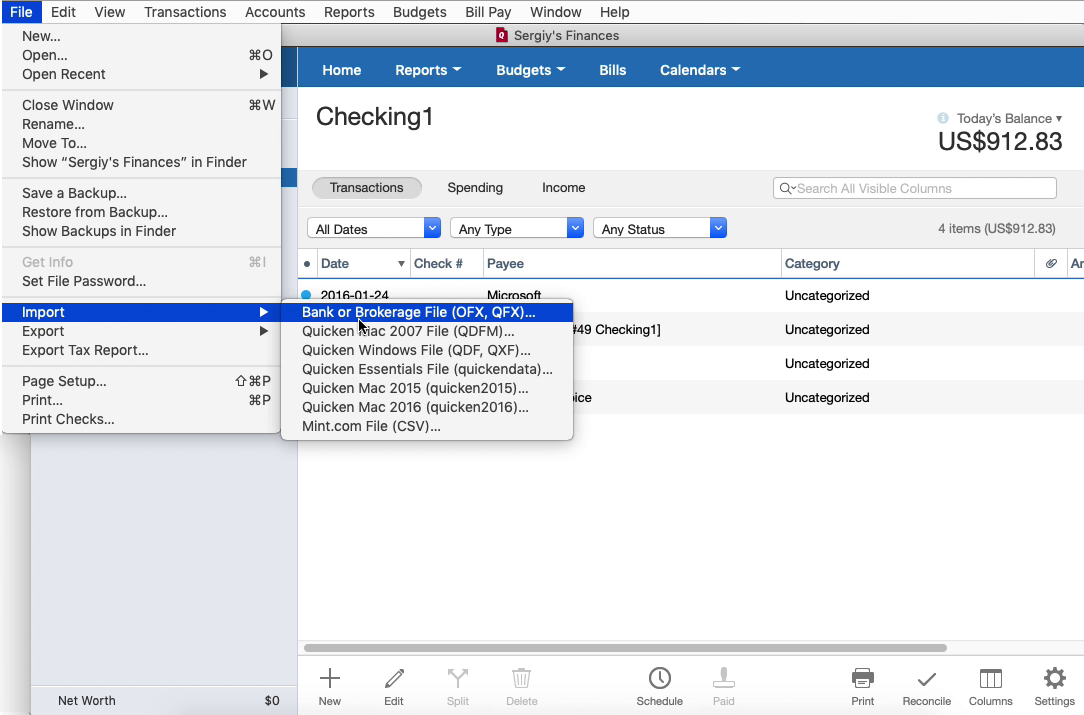
And select an existing account to import transactions instead of 'Add a new Quicken account'. Click the 'Continue' button.
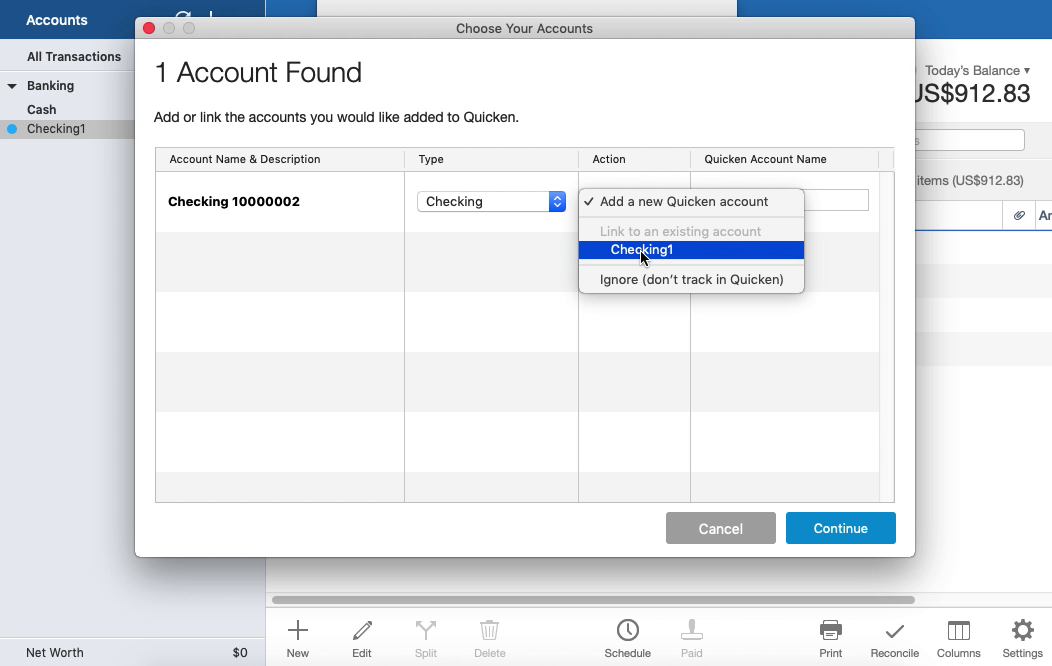
Now your transactions are imported. You can categorize, review, delete them. They are already inside Quicken.
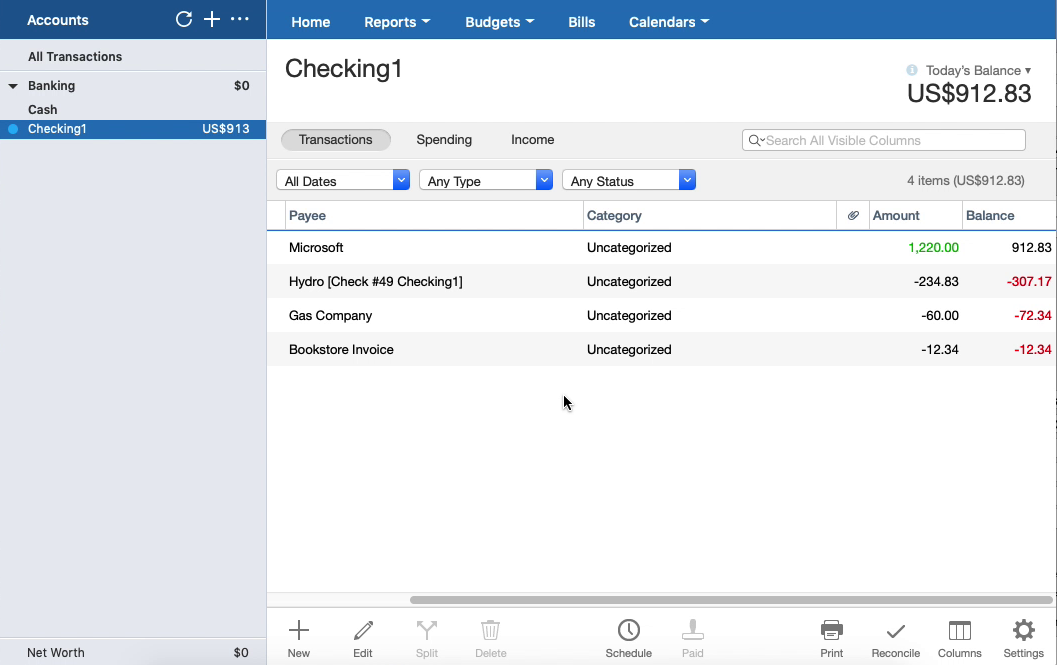
See this macOS tutorial as a video:
Related articles
- Convert QBO files to QIF and import into Quicken (QBO2QIF)
- How to use PDF2QBO converter (PDF2QBO)
- Transactions: Make your transaction files importable into your accounting software
- Convert QBO files to CSV (QBO2CSV)
- Convert OFX to CSV/Excel
- Convert transaction files to the QBJ, IIF format
- How To Use CSV2OFX